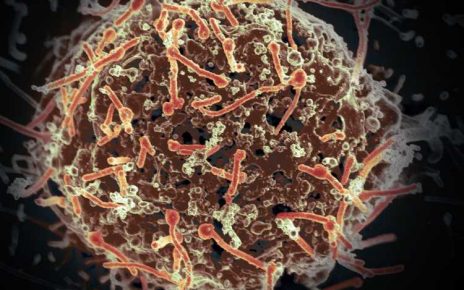NHS is forced to apologise after hundreds of obese Britons complain they have been ‘fat-shamed’ by health professionals
- Patients filed a total of 332 complaints to the NHS over three year
- Mother was reportedly threatened to be reported over her son’s weight issues
- Obesity expert warns patients should ‘face the truth’ that ‘being fat is deadly’
Hundreds of obese people claim they have been ‘fat-shamed’ by the NHS, data has revealed.
A probe found overweight patients have filed 332 complaints to the health service over the past three years about how they have been spoken to.
Doctors have reportedly called patients ‘cuddly’ or ‘stumpy’, with one member of the public even being accused of abusing her body due to her size.
And a mother complained after a medic threatened to contact social services unless she tackled her son’s weight problems.
Obesity campaigners agree nasty language is ‘unacceptable’, but added overweight patients should ‘face the truth’ that being fat could be deadly.

Hundreds of obese people claim they have been ‘fat shamed’ by the NHS, data shows (stock)
The Sun sent Freedom of Information requests to every NHS trust. Around three-quarters of them responded.
A patient registered an official complaint against Barking, Havering and Redbridge University Hospitals Trust after being told she could not use a porter toilet due to her size.
As well as the mother who medics threatened to report, another woman was offended when a dentist suggested her son was too large to fit in his chair.
Guy’s and St Thomas’ Trust in London also received a dressing down after a patient was told she was twice the size of a doctor in front of a family member.
And a consultant at Portsmouth Hospital reportedly had their hand slapped after telling a patient ‘people your size have become an epidemic’.
The patient sought medical help for headaches, which the doctor reportedly blamed on their weight.
Great Western Hospitals Trust in Wiltshire was forced to apologise to a patient when a doctor ‘fat shamed’ a female patient while scanning her leg.
The medic reportedly said: ‘It’s just fat, fat, fat. If you speak to a butcher, he will tell you there are five different types of fat, this is one of them.’
The same doctor also told the patient she was abusing her body by being the size she is.
Tam Fry, a spokesperson for the National Obesity Forum, said: ‘It is unforgivable that any health professional should use this kind of language at any time.
‘But absolutely necessary that some patients be left in no doubt that by being so fat they could lose a leg, go blind or die.
‘That requires plain language and if they can’t face the truth, so be it.’
Mr Fry added it is ‘essential’ doctors ‘speak plainly’ when communicating the risks of being obese to patients.
In 2017, 29 per cent of adults in the UK were classified as obese, NHS figures show. This was an increase from 26 per cent just one year earlier.
And children are not much better, with one fifth of 10-year-olds carrying a dangerous amount of weight in 2017-to-18.
Obesity was even directly responsible for 10,660 hospital admissions in 2017-to-18, NHS statistics show.
And in the US, 93.3million (39.8 per cent) of adults were obese in 2015-to-16, according to the Centers for Disease Control and Prevention.
Carrying so much excess weight raises a person’s risk of heart disease, stroke and type 2 diabetes, which can all lead to an early death.
Obesity is also said to be the second biggest preventable cause of cancer in the UK.
Carrying too much weight is linked to breast, bowel, womb, pancreatic, kidney and liver forms of the disease, to name a few.
WHAT IS OBESITY? AND WHAT ARE ITS HEALTH RISKS?
Obesity is defined as an adult having a BMI of 30 or over.
A healthy person’s BMI – calculated by dividing weight in kg by height in metres, and the answer by the height again – is between 18.5 and 24.9.
Among children, obesity is defined as being in the 95th percentile.
Percentiles compare youngsters to others their same age.
For example, if a three-month-old is in the 40th percentile for weight, that means that 40 per cent of three-month-olds weigh the same or less than that baby.
Around 58 per cent of women and 68 per cent of men in the UK are overweight or obese.
The condition costs the NHS around £6.1billion, out of its approximate £124.7 billion budget, every year.
This is due to obesity increasing a person’s risk of a number of life-threatening conditions.
Such conditions include type 2 diabetes, which can cause kidney disease, blindness and even limb amputations.
Research suggests that at least one in six hospital beds in the UK are taken up by a diabetes patient.
Obesity also raises the risk of heart disease, which kills 315,000 people every year in the UK – making it the number one cause of death.
Carrying dangerous amounts of weight has also been linked to 12 different cancers.
This includes breast, which affects one in eight women at some point in their lives.
Among children, research suggests that 70 per cent of obese youngsters have high blood pressure or raised cholesterol, which puts them at risk of heart disease.
Obese children are also significantly more likely to become obese adults.
And if children are overweight, their obesity in adulthood is often more severe.
As many as one in five children start school in the UK being overweight or obese, which rises to one in three by the time they turn 10.
Source: Read Full Article



